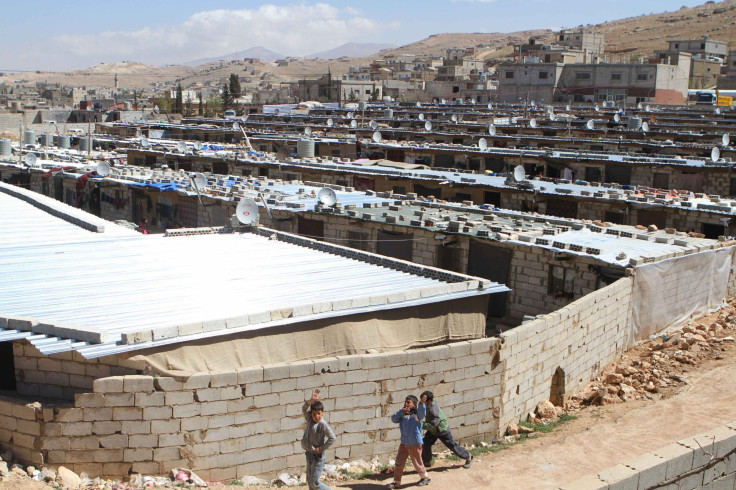Syria Humanitarian Aid: Donors Pledge $3.8B At UN Meeting In Kuwait

International donors at a United Nations conference in Kuwait pledged $3.8 billion as humanitarian aid to Syria on Tuesday, falling way short of the aid sought by the U.N. in December. The conflict, which entered its fifth year in March, has so far led to the deaths of over 220,000 Syrians and forced nearly 4 million people to flee across the border to the neighboring nations of Lebanon, Jordan and Turkey.
“Today, the international community has come together in solidarity with the people of Syria and neighboring countries bearing the heavy burden of hosting millions of Syrian refugees,” U.N. Secretary-General Ban Ki-moon, who chaired the gathering in Kuwait City, said in a statement. “We have sought to send a message of relief to the millions of Syrians who have been affected by this terrible crisis.”
Tuesday's conference was the third in consecutive years to be hosted by Kuwait. During the conference, the European Union pledged over $1 billion, the U.S. promised $507 million and Kuwait pledged $500 million as financial aid to deliver “life-saving food, water, shelter, health services and other relief” to millions of Syrians living in refugee camps.
“While some donors have been generous in Kuwait, the total aid pledged is less than half the amount needed this year to help people in desperate humanitarian need,” Andy Baker, who heads Oxfam’s response team to the Syrian conflict, said in a statement. “Unless more donor countries massively step up in the wake of the conference, the increasing numbers of people fleeing their homes and struggling to survive will be less and less likely to receive assistance.”
Nearly 80 percent of the Syrian population is believed to be living in conditions of abject poverty, according to a U.N.-backed report released last month by the Syrian Center for Policy Research. The protracted conflict has also reduced life expectancy of Syrians by 20 years and led to economic losses estimated at over $200 billion.
“Almost 5 million Syrians are still trapped without food or medical help in hard-to-reach or besieged areas,” Ban said in a speech at the conference. “We have seen the consequences of underfunding: they are catastrophic, leaving neighboring countries on their own as they struggle to provide for refugees.”
© Copyright IBTimes 2025. All rights reserved.






















